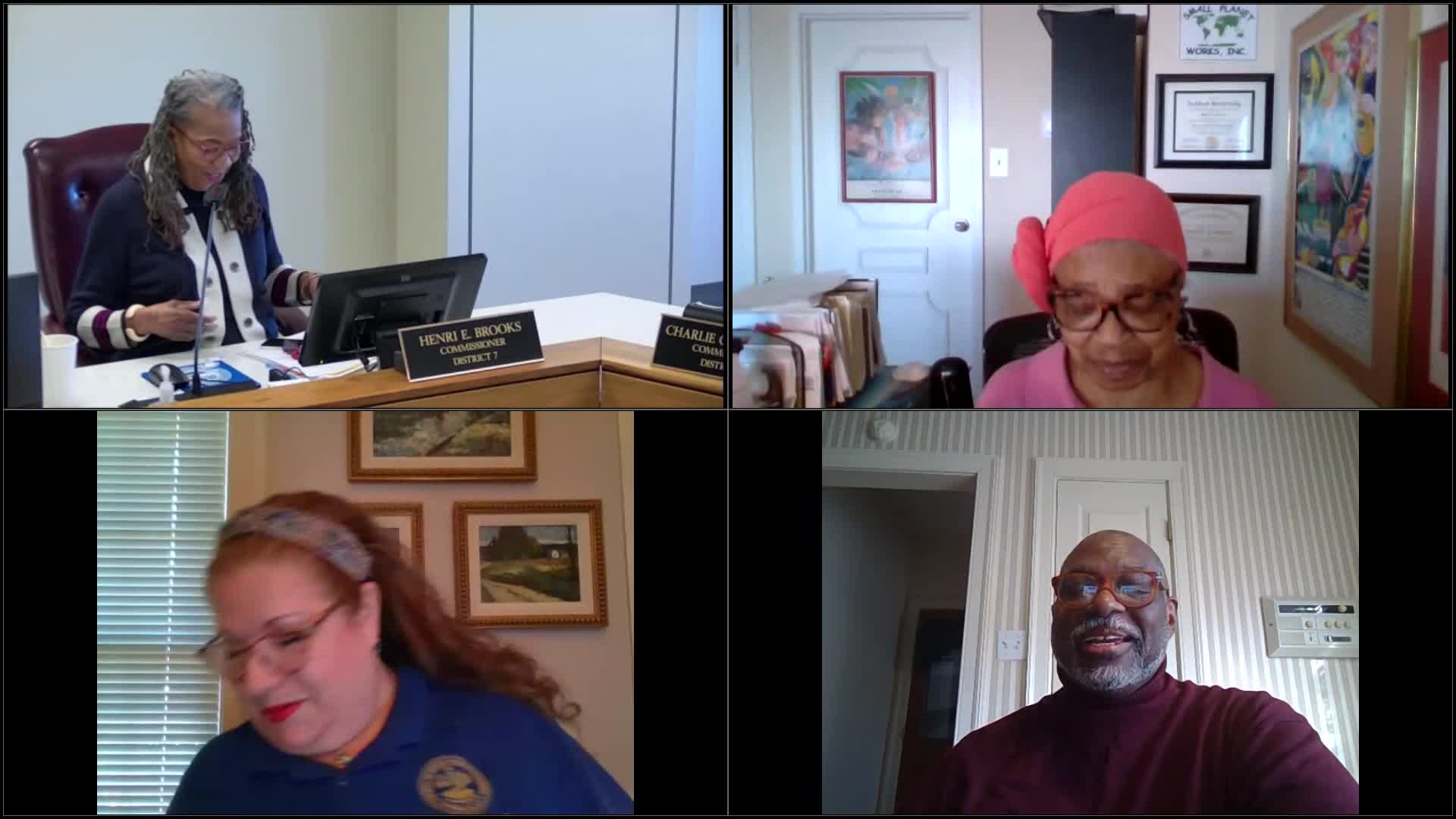Shelby County ad hoc committee agrees to refine proposal seeking moratorium and document access for housing-related tax pilots
Get AI-powered insights, summaries, and transcripts
Subscribe
Summary
A pre-meeting of the Shelby County Board of Commissioners’ Payment-in-Lieu-of-Taxes Ad Hoc Committee on 11/13/2024 reviewed a proposed resolution asking pilot-granting entities to pause housing-related tax abatement agreements while the county examines their performance and accountability.
A pre-meeting of the Shelby County Board of Commissioners’ Payment-in-Lieu-of-Taxes Ad Hoc Committee on 11/13/2024 reviewed a proposed resolution asking pilot-granting entities to pause housing-related tax abatement agreements while the county examines their performance and accountability. The committee agreed to send a combined, amended draft to the full ad hoc committee for a vote at the committee’s next regular meeting.
The resolution under discussion would ask boards that authorize pilot (payment-in-lieu-of-tax) agreements involving housing to pause new grants and extensions during a county review. Administrator Javier Bailey, the staff member leading the discussion, told the committee that the assessor’s office can compel records under state law: “we can demand, according to 67 5 3 0 1 and 6 0 1, we can demand …” Bailey said the assessor’s team is already assembling documents and performing site visits on hundreds of pilot agreements.
The committee debated scope and wording. Several members pressed to cover “any board that issues pilots with a housing component” rather than naming a single board, noting that entities can shift projects between authorities. Marcy Ingram, legislative counsel, advised that the resolution as drafted would be a request to those boards, and that the assessor’s statutory subpoena power would be faster than relying on the county’s resolution alone. Ingram summarized the committee’s preferred changes as: broaden the caption to cover all housing-related pilot authorities; update the pilot count to “532 and counting”; and qualify the $41,000,000 figure as “based on assessments of record.”
The group also discussed whether to include explicit subpoena language in the resolution. Bailey and Ingram advised relying first on the assessor’s statutory authority to obtain documents and to reserve county-commission-issued subpoenas as a backup if entities do not comply. Ingram said the assessor’s authority historically can be faster because it is statutory: “the assessor’s office has statutory authority to issue a subpoena and require those agencies to produce documents to them, which would be faster than delegating or asking that those bodies do it via resolution,” she said.
Committee members asked about timing and data. A trustee noted that as of November there were 532 pilot agreements; the same participant recommended flexible phrasing (“500-plus” or “532 and counting”) because the number changes monthly. The committee discussed the assessor’s ongoing reappraisal work: staff said the assessor’s office reappraises property on a four‑year cycle and is reviewing parcels with pilots now, with new values to start appearing in March. The committee also discussed previous uses of subpoena power in what was referred to as the Electrolux matter as an example of the assessor’s authority to compel records.
Action items and next steps were agreed. The committee directed staff and counsel to incorporate the discussed edits—broadening the moratorium language to housing-related pilots, changing the pilot count language, qualifying the $41,000,000 figure, and relying on the assessor’s statutory authority for records—into a single combined draft. The committee agreed to present that draft to the full ad hoc committee for a vote at the regularly scheduled meeting (the third Thursday of the month, identified as the 16th) at 11:30 a.m.
Public comment during the pre-meeting included a statement urging stronger limits on abatements and recommending reductions to typical abatement percentages and term lengths. Public commenter Kent said recent changes to downtown pilot terms and transfers of pilot funds raised concerns about oversight and recommended reform measures, including caps on term length and tighter limits on predevelopment tax avoidance.
The committee emphasized that the purpose of the effort is fact-finding and compliance review rather than a presumption of wrongdoing. Members noted the exercise will take legal research and periodic reports back to the ad hoc committee as staff continues document collection and valuation work.
